Metropolis sharing experience on air quality management
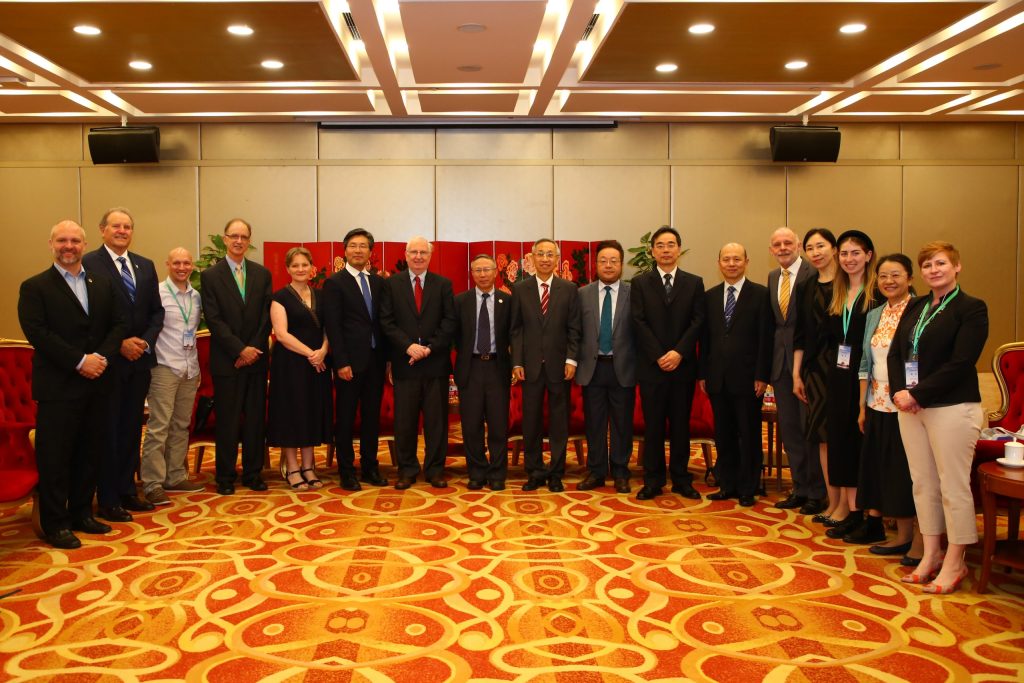
92% of the population in Asia and the Pacific is facing air pollution. As one of the biggest and fast-growing megacities, Beijing had been through severe air pollution and served as the benchmark when it comes to the air quality of cities. Since then, air quality management step onto the center stage of the municipal work.
With decades of effort, Beijing has successfully reduced SO2, NO2, and PM10 by 93.3%, 37.8%, and 55.3% respectively. However, their achievements have yet been well recognized globally. Meanwhile, Beijing is still keen to learn more from successful experiences around the world.
Following the Beijing International Forum for Metropolitan Clean Air Actions first successfully hosted in 2018, the Beijing Municipal Ecology and Environment Bureau hosted the 2019 Forum, titled Clean Air and Climate Change on 8-9 July, gathering over 260 participants from metropolises including Paris, London, Berlin, Tokyo, Seoul, Bangkok, Ulaanbaatar and Hong Kong, representatives from international organizations and experts.
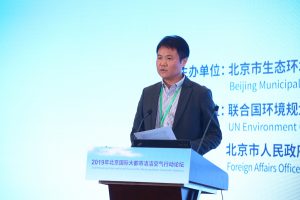
Shu Zhu, Regional Director and China Representative of ICLEI East Asia
The ICLEI East Asia Secretariat Beijing Office contributed as the co-host of the Forum. Shu Zhu, Regional Director and China Representative of ICLEI East Asia, moderated one of the panel sessions, during which cases from California, Hong Kong, Beijing and Kitakyushu were presented.
“Cleaning the air is a marathon, not a sprint,” said Catherine Witherspoon, Senior Advisor of the Climate Works Foundation and former Executive Officer of the California Air Resources Board.
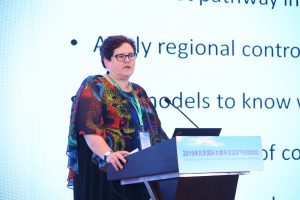
Catherine Witherspoon, Senior Advisor of the Climate Works Foundation
“California is facing a high concentration of NOx,” said Witherspoon, “but limiting emission does not seem to be an effective method as the emission from registered trucks alone could go up to 20 times over the limit.” Thus, California introduced a new perspective of tackling air pollution using the principles of “3E’s”, which suggests that knowing the ultimate solutions would allow cities to end games; monitor the actual exposure to pollutants; and provide a stronger safety net for economics in addressing citizens’ fear of losing jobs before it became a reality. Following these principles, California has been focusing on exploring the zero-emission freight alternatives, rather than limiting emissions from specific vehicles.
With the same principles, Witherspoon suggested that, instead of working on improving the quality of diesel fuel, Beijing could consider investing in biofuel development. In addition, the city is also advised to place more focus on tracking specific exposure data, such as the number of people, hours of duration, and maximum dose of exposure to pollutants, rather than monitoring the traditional peak levels only.
Following that, Sarah L. Rees, Assistant Deputy Director of the California South Coast Air Quality Management District, elaborated in details on zero-emission from both mobile and stationary sources in the California South Coast region. It includes clean fuels, zero and low-VOC coatings and solvents, incentives for technology demonstration and commercialization of zero and near-zero emission technology, etc.
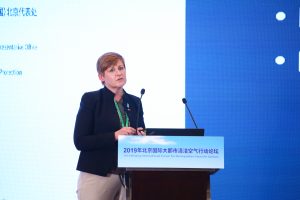
Sarah L. Rees, Assistant Deputy Director of the California South Coast Air Quality Management District
Hong Kong places its efforts on traditional emission reduction measures, such as power generation, vehicle emissions, marine emissions, non-road mobile machinery, and VOC emissions. In the meantime, the city has also collaborated with the Guangdong Province and jointly established the Guangdong-Hong Kong-Macau Pearl River Delta Regional Air Quality Monitoring Network to achieve regional emission reduction targets, said Yueli Li, Senior Environmental Protection Director of the Hong Kong Environmental Protection Department.
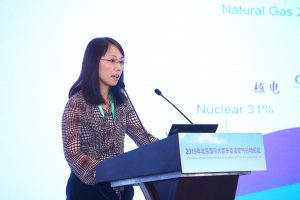
Yueli Li, Senior Environmental Protection Director of the Hong Kong Environmental Protection Department
Dengli Ming, Chief of the Science, Technology and International Cooperation & Climate Change Division, Beijing Municipal Ecology and Environment Bureau, addressed the synergy of clean air and climate change in achieving green and low-carbon development and expressed Beijing’s willingness to learn from other participating cities for the development of 14th Five-Year Plan and medium- to long-term climate action plans.
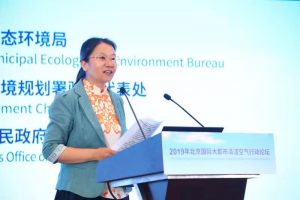
Dengli Ming, Chief of the Science, Technology and International Cooperation & Climate Change Division,
Beijing Municipal Ecology and Environment Bureau
Kitakyushu is well known for its success in transforming polluting industries into clean productions and clearing up its environment. Masayuki Higuchi, Manager of the Global Warming Prevention Division, Kitakyushu Environment Bureau shared the city’s experience in local energy supply, eco-town for sound material recycling, hydrogen fuel cells for electricity, and citizen awareness through air conditioners use in offices and Teitan points as incentives.
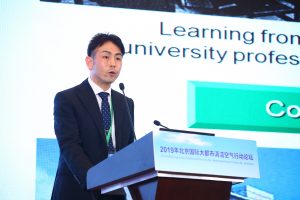
Masayuki Higuchi, Manager of the Global Warming Prevention Division, Kitakyushu Environment Bureau
Xuezhi Xiao, Deputy Director of the International Cooperation Department, Ministry of Ecology and Environment of China, believed that metropolises are playing a major role in improving air quality. “China has learned fruitful experiences from France, Germany, and Europe, and is looking forward to moving beyond and learning more from other metropolises around the world,” he added, “and this Forum is a good platform for us to share our experiences and learn from each other.”
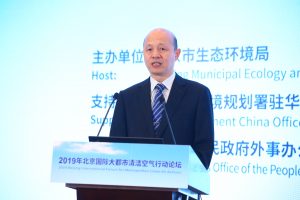
Xuezhi Xiao, Deputy Director of International Cooperation Department, Ministry of Ecology and Environment of China

